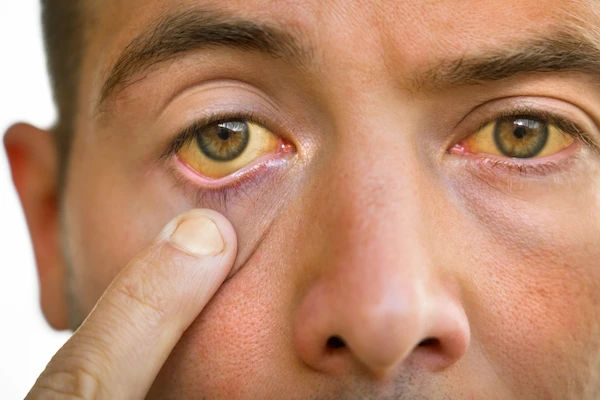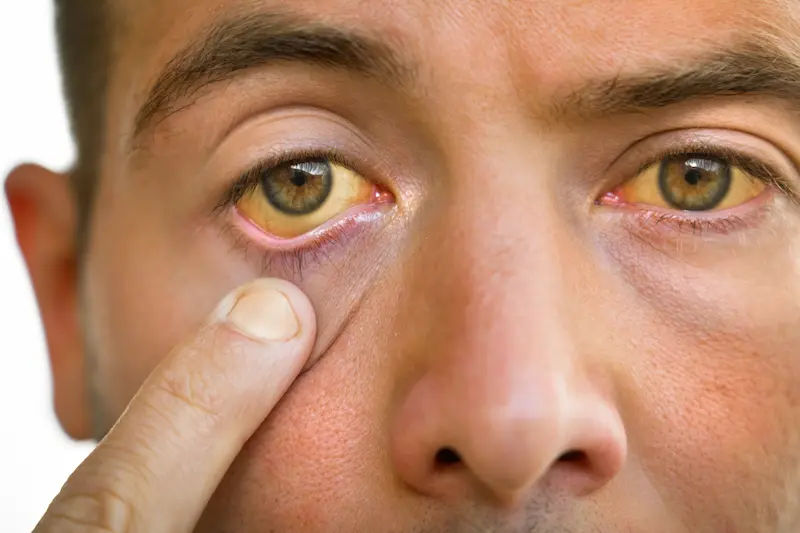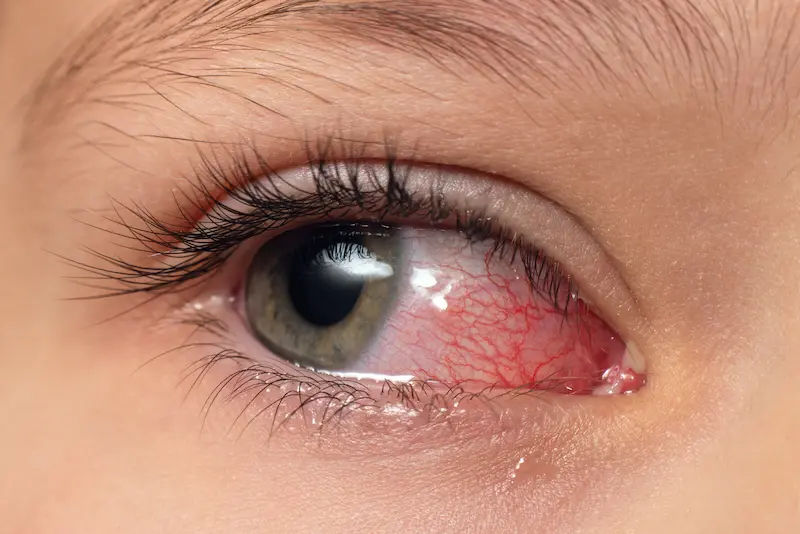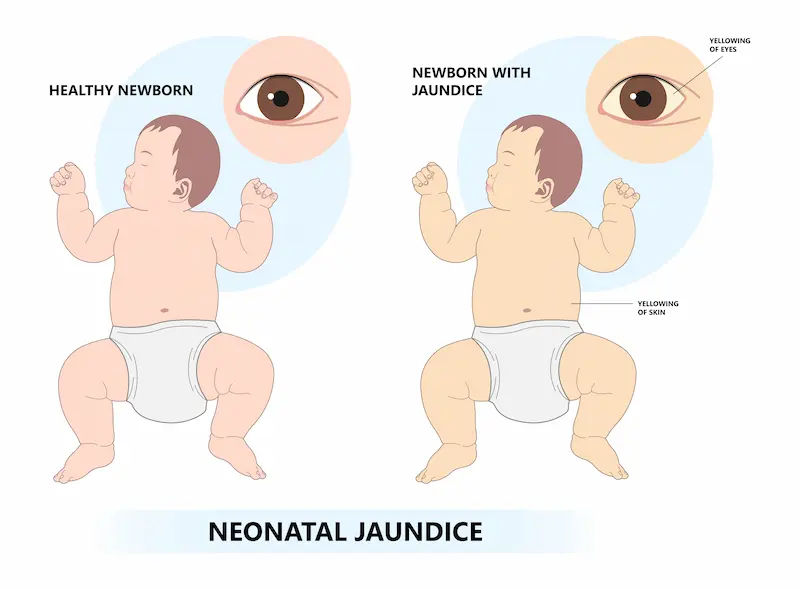Jaundice Preventable Disease: Your Complete Guide to Risk Reduction
Learn how to prevent jaundice with vaccinations, liver-friendly diet tips, lifestyle choices, and newborn care strategies. A complete guide to risk reduction.

%20(1).webp?tr=q-80,f-webp,w-350,dpr-2,c-at_max 700w)
Introduction
Jaundice, characterised by a tell-tale yellowing of the skin and eyes, is a common sign of an underlying health issue, often related to the liver. While it can be alarming to see, the most empowering fact is that many forms of jaundice preventable disease are just that: preventable. This is not just about treating a symptom; it is about understanding the root causes and building a lifestyle that safeguards your body’s vital filtration system.
This guide moves beyond simply defining the problem. We will delve into the practical, actionable steps you can take to significantly reduce your risk of developing jaundice, covering everything from crucial vaccinations and dietary choices to lifestyle habits and knowing when to seek help. Think of this as your proactive plan for long-term liver health and overall well-being.
What Exactly is Jaundice? Breaking Down the Yellow Sign
At its core, jaundice is a visual indicator of a build-up of a yellow substance called bilirubin in your bloodstream. Bilirubin is a natural waste product created when your body breaks down old red blood cells. Normally, this process is seamless. Your liver filters the bilirubin from the blood, processes it, and mixes it into bile, a digestive fluid. The bile is then stored in the gallbladder and eventually released into the intestines to be eliminated from the body.
Jaundice occurs when this efficient disposal system breaks down. This malfunction can happen at several points: if red blood cells are destroyed too rapidly for the liver to keep up, if the liver cells are damaged and cannot process the bilirubin, or if the drainage pathways (the bile ducts) are blocked, causing bilirubin to leak back into the blood. This build-up is what leads to the classic yellowish discolouration, first noticeable in the whites of the eyes and then the skin.
The Role of Bilirubin: The Yellow Pigment
Bilirubin itself is not inherently harmful; it is a normal by-product of a healthy bodily function. Problems only arise when its levels become elevated, a condition known as hyperbilirubinaemia. Measuring bilirubin levels through a simple blood test is a primary way doctors diagnose and assess the severity of jaundice. It is important to understand that jaundice is a symptom, not a disease itself. Identifying the type and cause of the bilirubin build-up is the key to effective treatment and, more importantly, prevention of liver disease.
Consult Top Doctors for Your Symptoms
Your Shield Against Jaundice: Proactive Prevention Strategies
The good news is that you have significant power to prevent many of the conditions that lead to jaundice. A proactive approach centred on liver health is your best defence.
1. Vaccination: Your First Line of Defence Against Viral Hepatitis
Vaccination remains one of the most effective preventive measures against jaundice caused by viral hepatitis.
- Hepatitis A: Spread through contaminated food or water. The vaccine is highly effective and is often recommended for travellers.
- Hepatitis B: Spread through contact with infected blood or bodily fluids. This is a crucial vaccination for everyone, as it can prevent a chronic infection that leads to cirrhosis and liver cancer.
Consulting a doctor about your vaccination status is a simple step with monumental benefits for your long-term health. If you are unsure about your vaccination history or are experiencing symptoms, you can consult a doctor online with Apollo24|7 for quick advice and guidance on getting vaccinated.
2. Diet and Nutrition: Eating for a Healthy Liver
Your liver processes everything you eat and drink, making nutrition central to prevention. A liver-friendly diet is rich in fibre, antioxidants, and healthy fats while being low in processed foods, sugar, and unhealthy fats.
A. Foods to Embrace: Liver-Friendly Choices
Adding specific foods to your diet can give your liver the support it needs.
- Fruits and Vegetables: Leafy greens such as spinach and kale, cruciferous vegetables like broccoli and Brussels sprouts, beets, carrots, and berries provide antioxidants that protect liver cells from damage.
- Whole Grains: Oats, brown rice, and whole wheat supply fibre, which aids digestion and elimination.
- Lean Protein: Sources like fish, chicken, tofu, and legumes are easier for the liver to process than red meat.
- Healthy Fats: Nuts, avocados, and olive oil support overall health without overloading the liver.
B. Foods to Limit or Avoid: Reducing the Burden
Equally important is knowing which foods to limit or avoid.
- Alcohol: A major dietary cause of liver damage, excessive consumption can lead to alcoholic hepatitis, cirrhosis, and jaundice.
- Sugary Foods and Drinks: High fructose corn syrup, found in many sodas and processed snacks, is hard on the liver and contributes to fatty liver disease.
- Salty and Processed Foods: These can cause fluid retention and stress the organs.
- Saturated and Trans Fats: Found in fried foods, baked goods, and fatty cuts of meat, they promote inflammation and fatty deposits in the liver.
3. Lifestyle Modifications: Protecting Your Liver Every Day
Beyond diet, daily choices play a significant role in liver health.
A. Alcohol Consumption: Understanding Safe Limits
If you choose to drink, do so in moderation. Guidelines generally suggest up to one drink per day for women and up to two for men. However, for individuals with existing liver concerns, the only safe amount is often none.
B. Medication Awareness: Avoiding Liver Toxicity
Your liver metabolises most medications, making it vital to use them responsibly. Always follow dosage instructions carefully. Be cautious with over-the-counter pain relievers such as acetaminophen; exceeding the recommended dose can cause acute liver failure. Never mix alcohol with medications. Discuss all supplements and herbs with your doctor, as some can be hepatotoxic.
4. Preventing Specific Types of Jaundice
Different types of jaundice require targeted preventive approaches.
- Avoiding Gallstones: Since gallstones can block bile ducts and cause obstructive jaundice, a diet low in cholesterol and high in fibre can help prevent their formation. Staying hydrated is also crucial.
- Managing Genetic Conditions: For those with Gilbert’s syndrome (a harmless inherited cause of mild jaundice), prevention involves avoiding triggers such as dehydration, stress, skipping meals, and illness, which can temporarily elevate bilirubin levels.
Special Focus: Preventing Jaundice in Newborns
Newborn jaundice is common and usually harmless, occurring because a baby’s liver is still maturing. However, severe cases can be dangerous if not managed promptly.
- Ensuring Adequate Feeding: The primary preventive measure is ensuring the baby is feeding well, whether breastfed or formula-fed. Frequent feeding promotes bowel movements, which helps excrete bilirubin from the body.
- Understanding and Monitoring Risk Factors: Doctors closely monitor babies with risk factors such as prematurity, bruising during birth, or a different blood type from the mother. Parents should watch for yellowing of the skin and eyes and report it to their paediatrician, who can perform a simple bilirubin test to check levels.
When to Seek Professional Help: Recognising the Signs
While prevention is key, knowing when to seek medical advice is equally important. Seek medical help if you notice any of the following:
- Yellowing of your skin or the whites of your eyes.
- Dark-coloured urine (often described as tea-coloured).
- Pale, clay-coloured stools.
- Persistent fatigue, abdominal pain, or unexplained weight loss.
- Nausea and vomiting.
If you experience these symptoms, especially if they persist beyond two weeks, consult a doctor online with Apollo24|7 for further evaluation. Early diagnosis of the underlying cause is vital for effective treatment. For necessary diagnostic tests such as liver function tests (LFTs) or bilirubin levels, Apollo24|7 offers convenient home collection services.
Conclusion
Jaundice may be a visible signal of trouble, but it is also a reminder that we have considerable control over our liver health. By understanding that jaundice preventable disease is a reality for many of its forms, you can move from worry to empowerment.
Integrating strategies such as vaccination, conscious nutritional choices, sensible lifestyle habits, and awareness of your body’s signals builds a strong defence system. Your liver is a resilient organ, and by treating it with care, you significantly reduce your risk of jaundice while investing in long-term vitality. Start with one change today, whether it is scheduling a vaccination, adding more greens to your plate, or simply committing to staying hydrated.
Consult Top Hepatologists
Consult Top Hepatologists

Dr. Srinivasa Reddy
Hepatologist
12 Years • MBBS, MD (General Medicine), DM (Hepatology),ASGE
Hyderabad
Myra Liver & Gastro Care, Hyderabad

Dr. E Prabhakar Sastry
General Physician/ Internal Medicine Specialist
40 Years • MD(Internal Medicine)
Manikonda Jagir
Apollo Clinic, Manikonda, Manikonda Jagir
(150+ Patients)

Dr. Pukhraj Singh Jeji
Gastroenterology/gi Medicine Specialist
13 Years • MBBS, MD ( Internal Medicine ), DM ( Gastroenterology ), Consultant - Gastroenterology
Bhubaneswar
Apollo Hospitals Old Sainik School Road, Bhubaneswar

Dr. Sushith C
General Physician
2 Years • MBBS
Bengaluru
PRESTIGE SHANTHINIKETAN - SOCIETY CLINIC, Bengaluru

Dr U V U Vamsidhar Reddy
Hepatologist
10 Years • MBBS, MD (JIPMER), DM (Hepatology, PGIMER)
Chennai
Apollo Hospitals Greams Road, Chennai
(75+ Patients)
Consult Top Doctors for Your Symptoms

Dr. Srinivasa Reddy
Hepatologist
12 Years • MBBS, MD (General Medicine), DM (Hepatology),ASGE
Hyderabad
Myra Liver & Gastro Care, Hyderabad

Dr. E Prabhakar Sastry
General Physician/ Internal Medicine Specialist
40 Years • MD(Internal Medicine)
Manikonda Jagir
Apollo Clinic, Manikonda, Manikonda Jagir
(150+ Patients)

Dr. Pukhraj Singh Jeji
Gastroenterology/gi Medicine Specialist
13 Years • MBBS, MD ( Internal Medicine ), DM ( Gastroenterology ), Consultant - Gastroenterology
Bhubaneswar
Apollo Hospitals Old Sainik School Road, Bhubaneswar

Dr. Sushith C
General Physician
2 Years • MBBS
Bengaluru
PRESTIGE SHANTHINIKETAN - SOCIETY CLINIC, Bengaluru

Dr U V U Vamsidhar Reddy
Hepatologist
10 Years • MBBS, MD (JIPMER), DM (Hepatology, PGIMER)
Chennai
Apollo Hospitals Greams Road, Chennai
(75+ Patients)
More articles from Jaundice
Frequently Asked Questions
Is jaundice itself a contagious disease?
No, jaundice is a symptom, not a disease, so it is not contagious. However, some of the underlying causes of jaundice, such as viral hepatitis A or B, can be contagious.
Can you prevent jaundice 100%?
While not all causes, such as some genetic conditions, are fully preventable, you can drastically reduce your risk of the most common causes through vaccination, diet, and lifestyle choices.
What is the fastest way to cure jaundice at home?
There is no instant cure for jaundice at home. Treatment depends entirely on the underlying cause. However, you can support your liver with rest, hydration, easily digestible foods, and by avoiding alcohol and substances that stress the liver. Medical care is essential.
Are yellow eyes always a sign of jaundice?
In most cases, yes. Yellowing of the sclera (the whites of the eyes) is a specific early sign of elevated bilirubin levels and should always be evaluated by a doctor.
How can I prevent my baby from getting newborn jaundice?
While not entirely preventable, you can reduce the risk of severe newborn jaundice by ensuring your baby is feeding adequately, which helps them clear bilirubin from their body.




 (1).jpg)